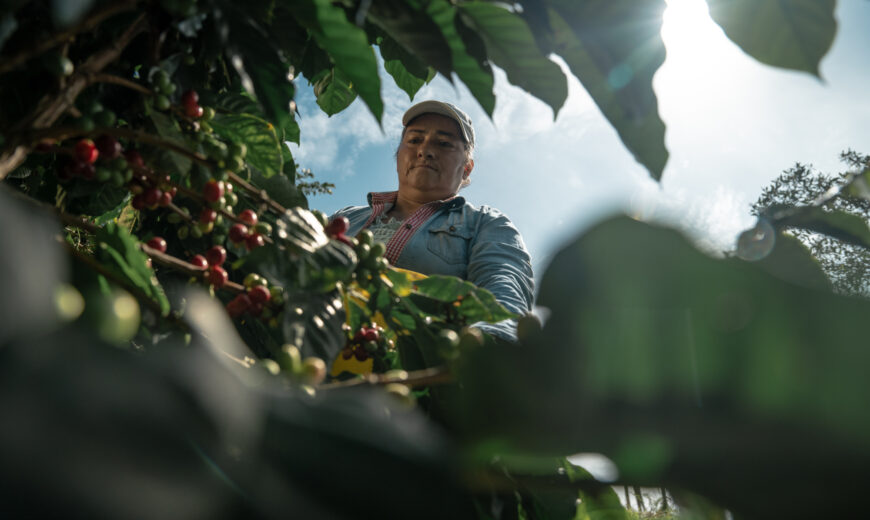16 Apr 2024
Fairtrade supports partners with due diligence criteria

To support companies and help them thrive in the context of strengthening expectations and laws on Human Rights and Environmental Due Diligence (HREDD), Fairtrade has updated its Trader and Hired Labour Standards to include HREDD criteria.
The Standard updates, which offer organisations and opportunity to align with HREDD regulations, will require companies that currently hold Fairtrade Trader or Hired Labour certification to establish and implement a full HREDD process, starting with a commitment to respecting human rights and environmental sustainability. The updates will be implemented in phases.
The Fairtrade Trader standard applies to all companies that buy and sell Fairtrade products, and/or handle the Fairtrade price and premium. The Hired Labour Standard applies to organisations that employ hired labour to supply Fairtrade-certified products.
In addition, all must also identify the most serious human rights and environmental risks and harms related to their business, address and remediate them, and track the effectiveness of these measures.
“Due diligence is the new global norm for responsible business conduct and Fairtrade is set to support our partners throughout supply chains – from farmer cooperatives to brands and licensees – in aligning with the new expectations and laws,” said Tytti Nahi, the Director of Fairtrade’s Centre of Excellence on HREDD.
The requirements will be phased in starting in January 2025 and certified companies must meet all of them by January 2027. The applicability is incremental because HREDD is a process where the first steps lay the groundwork for the next ones.
Companies that become Fairtrade Trader or Hired Labour certified after January 2025 need to comply with some of the new requirements immediately and all of them within three years of being certified.
As part of Fairtrade’s inclusive approach, producers and traders were part of the decision-making process. They participated in the planning, consultation, and decision phase of the Standard updates, and will be instrumental in the implementation. The same principles will be followed when revising the Small-scale Producer Organizations Standard to include HREDD requirements in 2025.
By aligning the Fairtrade system with the HREDD approach, Fairtrade is expanding the support it provides for companies though tools, training, programs, awareness raising, and advocacy work.
In December 2023, Fairtrade published its first HREDD report that explained its actions across three roles: first, as an employer and a system with 25 member organisations; second, as a supporter of sustainable practices at companies throughout supply chains; and third, as an advocate for fairer laws and business practices globally.
In particular, the report included audit results showing how producers and traders are meeting the Fairtrade Standards, and showed their human rights and environmental challenges, including decent livelihoods, environment, and fair practices. The results do not tell the whole story of an organisation’s effort, but they do show where more support and effort is needed.
The responsibility for companies to respect human rights and conduct HREDD was recognised in the UN Guiding Principles on Business and Human Rights (UNGPs) in 2011. Numerous laws and regulations are making HREDD legally mandatory for diverse groups of companies, including the EU’s Corporate Sustainability Reporting Directive (CSRD) and the EU Deforestation Regulation (EUDR), as well as the upcoming EU Corporate Sustainability Due Diligence Directive and EU Forced Labour Ban.
For detailed information about the updates to the standards read the documents below
For Traders:
Fairtrade Standard
Main Changes Document
Hired Labour Organisation: